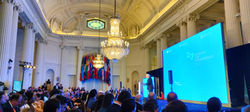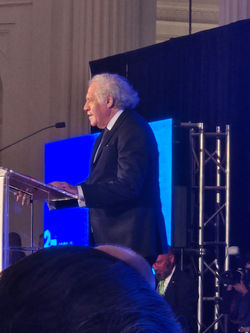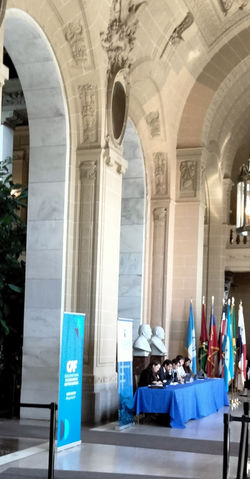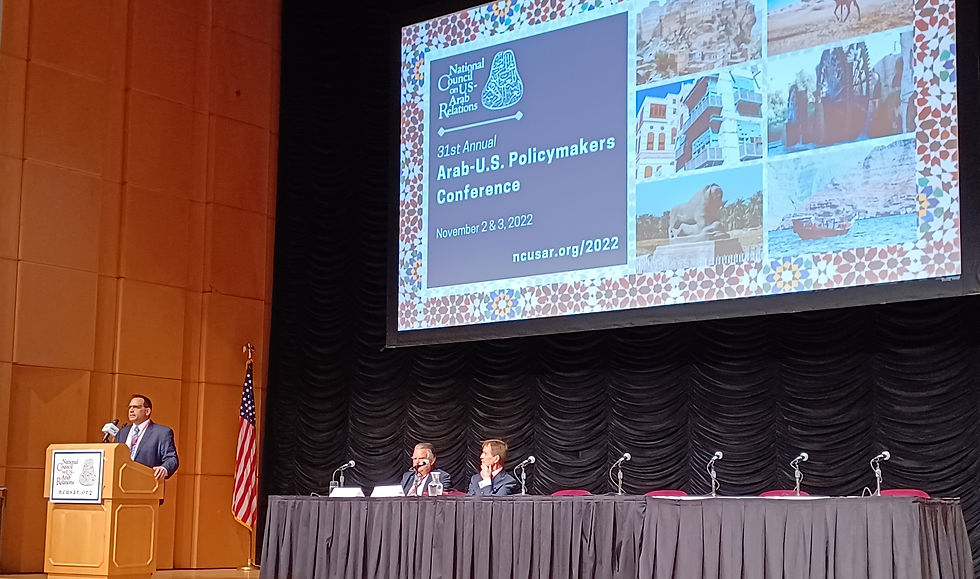

COP-29 was held between November 11 and 22, 2024, in Baku, the capital of Azerbaijan. The Conference's general objective was to discuss climate change, find solutions to environmental problems affecting
COP-29 was held between November 11 and 22, 2024, in Baku, the capital of Azerbaijan. The Conference's general objective was to discuss climate change, find solutions to environmental problems affecting the planet and negotiate agreements. In recent decades, countries have been working hard to find solutions to limit global warming to 1.5°C.
During COP-28, held in Dubai, United Arab Emirates, participants reinforced the commitments made in the Paris Agreement and sought to advance new concrete measures. During the sessions, governments, private companies and civil society discussed, together with companies from the electricity sector, strategies for reducing greenhouse gas emissions, promoting renewable energy and implementing policies to adapt to climate change.
In 2024, COP-29 prioritized negotiations on new collective climate finance targets. This edition also expanded discussions on accelerating the energy transition. The next climate change conference (COP30) will be held in Brazil, in November 2025, in Belém (PA).
 |  |  |  |  |  |  |
|---|---|---|---|---|---|---|
 |  |  |
November 2nd & 3rd, 2022 It is always an invaluable learning experience to have been a party to the National Council on US-Arab Relations. The 31st Annual Arab-US Policymakers Conference was an insightful 2-day event given the eminent threats on Saudi Arabia, the internal disruptions in Yemen and the recent sentiments going in the US political arena, and the circumstances of the Ukraine-Russian war. The spotlight on the turmoil in Middle Eastern history and the collective, cultures once again bares note to the importance of the US relationships.
The National Council on US Arab Relations, founded by Dr. John Duke Anthony, as always, he has been a consummate statesman, once again reminding us of the crossroads and the cross we must all bear. He presented a unique perspective covering the past 2 years emerging from the pandemic, evolving into the turbulence in Central Asia. And once again back to the Middle Eastern Nations with their historical alliances with the US and its interest in the region. His accounting of the past years was not so much of an apologetic nature, but more so relegated to facts. Facts, to which, but only a few are willing to be witness to the policies, their impact, and the cohesive elements which hold relationships in tack.
.




The global audience was tasked throughout these proceedings to “unlearn, that which has been learned via conventional wisdom” which has been a norm presented by special interest and media mongering. One very evoking concept for an educational institution that fosters and propagates FACTS regarding US-Arab Relations has been equated as, ”being in a university from which there is no possible graduation, only a good day,’ incomplete.” The internal conflict in Yemen has presented a real need for direct and real-world applications for security and humanitarian efforts to affix sustainable solutions. Mr. Timothy Lenderking, the US President’s Special Envoy, Sarah Charles USAID Humanitarian, and David Des Roches, Ret, Colonel, and professor at the Near East South Asia Center for Security Studies were a part of the first set of panels. They presented the current US outreach support and the need for additional donors from the public and private sectors. From an economic development perspective, Abdulrahman Al-Eryani, the former Principal Economic Officer at the Embassy of Yemen in Washington DC, and advisor to various Yemeni government agencies, and Ministries apprised the audience of the dire needs and the historical background.
The volumes of history, legacies, and world events past and present were presented in an acknowledgement of relationships. The depth of relations expressed through the airs of the Royal Families in the Middle East and elected officials for the highest office in the United States would be accounted for by the Honorable Senator, Delano Roosevelt. The Grandson of President, Franklin D. Roosevelt, delivers remarks on the shared histories between the Arab Nation States and the United States. This was followed by the renowned Egyptian businessman, accomplished politician, Founder, and Chairman of Cleopatra Group, H.E. Mohamed M. Abou El Enein. The keynote address was delivered by HRH Prince Turki Al Faisal Al Saud - King Faisal Center for Research and Islamic Studies Chairman. The agenda was complemented with a host of other dignitaries via Video Conference and in person. The audience was complete with business persons, professionals, academicians and students from the Middle East, North Africa (MENA) Region and their US counterparts during the 31st Annual Policymakers Conference.
See https://ncusar.org/auspc/2022
.
October/November 2022 - We are thankful for the return of events which in previous years were scheduled for the months of October and November in Washington, DC after emerging from the COVID-19 hibernation. The past 2 years have required many adjustments in the ways, and manner in which we all now conduct our daily lives. Starting in October, the return, of the World Bank events, the forecast for the world’s economies where presented for the business of global trading. The importance of alternative means for conducting business in the marketplace, and new trading mechanisms being institutionalized that have had a profound impact to the economies were among the topics. Although, the new mechanisms of technology have facilitated new paradigms, in which to address supply chain concerns, which makes the recoveries more tenable. However, there is still no substitute for the process of networking to gage the viability to which one intuitively may elect to conduct business, build alliances, and establish viable relationships prior to one’s own due diligence.
October 2022 This brings us to one of the oldest trading ports of the MENA (Middle East North Africa Region). The Sultanate of Oman’s Annual Conference of 2022 would illuminate its history, and past tradition’s impact onto Oman's modern fashion, and the accessories industries refined through its cultural heritage. As always, the Sultan Qaboos Cultural Center presents a program that enhances ones understanding of the Arab States and specifically East and Western relationships. His Excellency, (H.E) Ambassador Moosa Hamdan Al Tai, and the staff of the Qaboos Cultural Center coordinated a most insightful program. The Sultanate of Oman’s Ministries of Heritage and Cultural Affairs, H.E. Ibrahim Said Khalaf Al Kharusi, and the Smithsonian National Museum of Natural History, Associate Director and Chief Advancement Officer, Virginia Kromm would honor the Omani artisan, whose collection of traditional wardrobe was coordinated for exhibition at the museum, and to honor the traditional apparel that have transitioned into the modern world, establishing acceptable trends across the cultural of the fashion industry, the art of traditional silversmithing for jewelry and utilitarian objects, the art of perfumery derived from products such as Hajari Frankincense, rose petal extracts and other fragrances extracted from the indigenous products to Oman.
In addition to the artisan, panelists were also composed of Medical Doctors who had transitioned their traditional medical practices to establish business ventures for developing homeopathic medicines, health care product lines, cosmetics, and essential oils extracts. The proceedings were encapsulated from a historical, cultural, and anthropological perspective through both renowned presenters and moderators. Respectively, each advocating the importance of the rolls museums, cultural learning institutions, and the traditions adhered to in facilitating exposure and expansion of cultural and historical propagation of societies. With panelist, presenters, and a moderator having vast experiences at museums, and Institutions of education hailing from the New York Fashion Institute of Technology (FIT), various Smithsonian museums, a pleather of international museums, and institutions of learning for the arts, design, and technology. More importantly, the focus of the program’s agenda for exposing the historical traditions and cultural disciplines, for chronicling the advancements across a wide range of civil societies was presented. The lineup of experts was composed of Marcia Dorr, Alexander Nagel, PhD, Mohannad Salhi, PhD, Paul Michael Taylor, PhD, and Hanna Szczepanowska PhD, all of which illuminated the audience with their respective experiences, collective awareness, and knowledge.





















